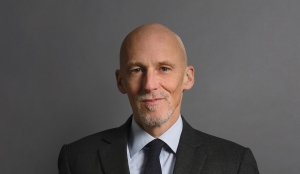Dutch government obliges VOD providers to invest in ‘Dutch cultural content’
In short:
- The new Dutch investment obligation for VOD-providers will affect those aiming at the Dutch market with a ‘relevant’ annual turnover exceeding 10 million EUR.
- This Act obliges to invest at least 5% of their ‘relevant’ annual turnover in Dutch cultural audiovisual content.
- VOD-providers are obliged to inform the Dutch Media Authority about the investments for each closed financial year.
- Compliance with the investment obligation is enforced ex-post by the Dutch Media Authority.
- Exemptions for the investment obligations are possible, though the requirements are yet unclear.
The European Audiovisual Observatory already flagged this proposal in its 2022 research into obligations for video on-demand providers (VOD providers) around Europe, but since 1 January 2024, the Dutch Act obliging investments in Dutch cultural audiovisual product (in Dutch) has entered into force. The investment obligation in itself made it through the legislative process rather easily, though its contents have been widely debated.
The investment obligation is ought necessary due to the pressure from large international VOD providers on local producers, who have considerable smaller budgets for productions and lose the fight for viewers from the multinational VOD providers with often English-spoken content. The legislator did not deem the current quota on European and independent productions (following from the Audiovisual Media Directive) or additional taxation suitable to tackle this issue. Meanwhile, obliging investments instead of taxation allows investments in certain genres or quality to distinguish themselves from competitors, while boosting Dutch content.
Both VOD providers registered in the Netherlands and providers offering their services to Dutch consumers from another country, regardless of the country of registration, generally fall under the scope of the investment obligation. If, subsequently, the VOD provider has a ‘relevant’ turnover exceeding 10 million EUR – while the first draft Act proposed a threshold of 30 million EUR – it is obliged to invest under this Act.
This turnover is only considered ‘relevant’, if it is generated in the Netherlands, relates to the VOD service concerned and derives from sources related to the VOD services. The Act stipulates that the relevant turnover is based for the first time on the new financial year starting on 1 January 2024 or on the remainder of the financial year ending later in 2024. The investment of 5% of the turnover should be made in the two financial years after the first financial years, e.g. before 1 January 2026 or 1 July 2026.
The calculated amount to be invested needs to benefit ‘Dutch cultural audiovisual products’ (DCAPs). Despite the initial limited definition of DCAPs, the Act currently includes a broad scope of products. All European productions except for sports events are considered as DCAPs, as long as they fulfil two out of four criteria, such as the use of more than 75% Dutch or Frisian in the scenario or in speech or that the main theme relates to Dutch culture, history, society or politics. Also, there are several quotas related to the type of production invested in. This includes for example that 60% of the invested amount must be invested in independent productions.
Finally, an ‘investment’ in a DCAP is considered as such if the investment or purchase (because it is also allowed to purchase the exploitation rights of productions qualifying as a DCAP) contract is signed. Moreover, in case a VOD provider invests for example 7% of its turnover in 2024, it may allocate the extra invested 2% to the 2025 investments.
The second obligation ensures effective compliance: VOD providers should inform the Dutch Media Authority about the calculation and height of the turnover and the investments made. The information should be sent to the Media Authority every year before the 1st of July.
These obligations may appear disproportional for certain VOD providers with specific content focused on a certain genre or with a small audience. The Act in that case provides for exemptions to the obligations. However, due to the novelty of this Act, further legislation specifying the grounds and procedures for an exemption should still be enacted. And since the Media Authority can only impose further legislation by approval of the Minister, who still needs to be assigned after recent elections, this could take until mid-2024 before more becomes known about the exemptions.
All in all, VOD providers exceeding the 10 million EUR threshold should pay close attention (i) if the required investments are foreseen for the upcoming financial years and (ii) if the investments are compliant with the conditions included in this Act. The investment obligation will thus not only impose a financial burden upon VOD providers, but also affects their strategies, planned investments and potentially their general operations in the Netherlands. Especially as neighbouring Germany and Belgium – imposing investments worth at most respectively 2,5% and 2,2% (Wallonia) of the annual turnover – impose more lenient regimes to boost local content. So, while this may foster local productions, the Dutch market may become less appealing for multinational VOD providers.




